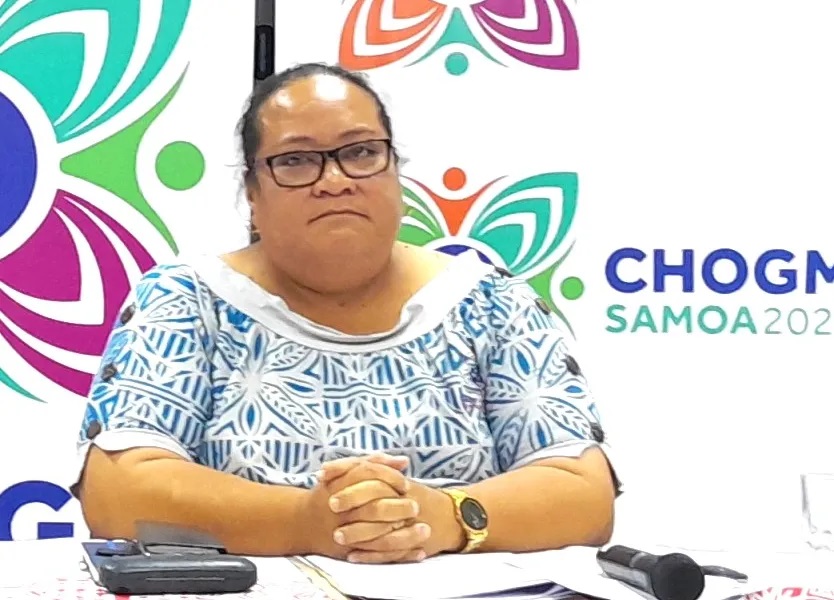The President of the Journalists Association of Samoa (JAWS), Lagi Keresoma, has expressed disappointment over the stringent media guidelines announced by the Commonwealth Heads of Government Meeting (CHOGM) Media Committee at Wednesday media briefing, raising significant concerns about transparency within the local media community.
“It is very disappointing for a Government that claims to believe in democracy, transparency, and accountability to be at the forefront of such restrictions,” Keresoma said.
She stressed the importance of providing proper media access, especially as Samoa hosts this high-profile event.
Earlier this year, JAWS offered to assist by providing two senior journalists to help the Media Committee develop media coverage guidelines for CHOGM 2024, noting that most committee members are CEOs without field experience in journalism. However, this offer was ignored.
With CHOGM 2024 just five weeks away, local journalists have decided to pursue the matter further following the briefing, concerned that the restrictive guidelines could hamper their ability to report adequately.
As preparations ramp up, the CHOGM Media Committee’s stringent guidelines, detailed by Chairperson Lefaoalii Unutoa Auelua Fonoti, have sparked anger among local media practitioners.
Lefaoalii is the CEO of the Ministry of Communications (MCIT) that operates Radio 2AP and the Government TV Channel 9 who are in a partnership with a New Zealand based company MMG as host broadcaster for the meeting.
According to Lefaoalii, the media guidelines were endorsed by Cabinet.
During the Q & A session, the media representatives tried to explain to the Committee the nature of their work and what the Committee has outlined and put in place will limit and not serve the needs of the media.
“The host broadcaster is the only authorised entity to film the whole meeting from the opening, closing, meetings at various venues and if any of the media need raw footage, interviews or photos, they must place a request at the media centre Help Desk,” explained Lefaoalii.
No media is allowed to take photos or film clips even for short news items at the opening and closing ceremony, she stated.
She also explained that the stringent protocols include limitations on access to specific venues, justified by the government as necessary for delegates’ safety and to prevent information leaks.
Senior journalist and former RNZI correspondent Autagavai Tipi Autagavaia asserted that the restrictions pose a pure conflict of interest given Lefaoali’i’s involvement and as Chair of the Media Committee.
The restrictions also give the overseas media entity preferential treatment and essentially block off the local media and will impact their ability to report comprehensively on the proceedings of CHOGM 2024.
Lefaoalii explained that there would be media pools provided and the Committee after the media accreditation of local and international media will select media representatives for each pool.
Autagavaia pointed out that different media outlets have different needs, deadlines and some are selective of the events that they would cover.
“We do not operate like that and the media have different interests, needs and different angles to work from and what the committee is suggesting is “unethical”, he said.
Lefaoalii however insisted “You have to follow what the Government wants us to do and this has been a practise with such meetings in the past.”
Despite the concerns raised by the media, Lefaoalii maintains that adherence to government directives is vital for a successful coverage of CHOGM 2024.














